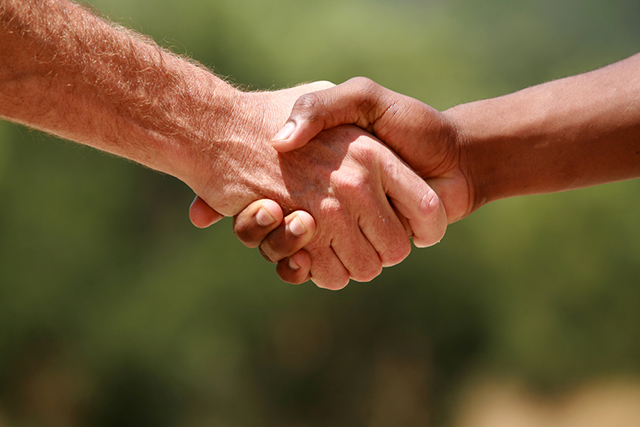
Truthout is a vital news source and a living history of political struggle. If you think our work is valuable, support us with a donation of any size.
On November 3, 1979, Ku Klux Klansmen and Nazis opened fire on a group of protesters in a black neighborhood in Greensboro, North Carolina. Local police stood by and watched. Five protesters died and at least 10 were wounded.
Two criminal trials resulted in acquittals by all-white juries. A civil trial held the police complicit in one killing. The community was deeply divided over the outcome, and lingering tension led a group of Greensboro citizens to form a Truth and Reconciliation Commission (TRC) in 2004. According to its mandate, the TRC’s aim was to look into the past “to provide the best possible foundation for moving into a future based on healing and hope.”
Although city authorities declined to participate, the commission held public hearings, reviewed historical documents, and interviewed hundreds of people. In 2006, the TRC issued a report calling for official apologies, public monuments, a community justice center, a police review board, and anti-racism training for police and other officials.
Some of these recommendations were or are being implemented. Despite the city government’s lack of participation, the Greensboro TRC opened dialogue and increased trust, according to residents. Some of those responsible for the violence apologized.
Truth and reconciliation processes hold special promise for addressing the US epidemic of racial violence, exposing its deep historical roots, and working toward reconciliation. Truth-telling encounters between those who have caused harm and those who have been harmed can promote accountability, address the needs of everyone affected, and lay a foundation for reconciliation, justice, and transformed social structures.
South Africa’s Truth and Reconciliation Commission is the best known of about 40 truth commissions formed between 1980 and 2010. The commission investigated human rights abuses from 1960 to 1994, heard victims’ and perpetrators’ stories, and considered amnesty petitions.
Like the outcome in Greensboro, the results of South Africa’s TRC are mixed. The expected reparations were not made, and apartheid’s legacy of extreme poverty remains intact. Nonetheless, South Africa’s truth and reconciliation process established a spirit of forgiveness that helped the country transcend hundreds of years of hatred and violence and liberated millions of Africans from the yoke of apartheid.
The Truth and Reconciliation Commission of Canada was created by the federal government in 2008 to investigate the legacies of Indian residential schools. Beginning in 1874, aboriginal children were forcibly removed from their homes and taken to residential schools, where they were punished for speaking their language and practicing their traditions. Many suffered physical and sexual abuse; thousands didn’t survive. The last school closed in 1996, and to this day much of the alcoholism and drug addiction found in Native communities is attributed to the trauma suffered at these schools.
The TRC of Canada’s interim report from 2012 said these schools “constituted an assault” on First Nations children, families, culture, and autonomy. Survivors say this acknowledgement begins the healing process, although much more is needed. The commission, after traveling to more than 300 communities and taking testimony from 6,500 witnesses, will issue its final report this June.
The Ferguson Truth-Telling Project (FTP), for which I am an advisory board member, was formed in the wake of the killing of Michael Brown to initiate a process of truth-telling in which victims of police violence and their families share their stories – stories that will serve as documentation to support structural change. The FTP is also planning to create community groups to provide a space for empathetic listening and identifying solutions.
Healing is long, slow work. But if we start with authentic truth-telling and engage in an inclusive search for solutions, we can begin to transform relationships and move step-by-step down the path to reconciliation.
Holding Trump accountable for his illegal war on Iran
The devastating American and Israeli attacks have killed hundreds of Iranians, and the death toll continues to rise.
As independent media, what we do next matters a lot. It’s up to us to report the truth, demand accountability, and reckon with the consequences of U.S. militarism at this cataclysmic historical moment.
Trump may be an authoritarian, but he is not entirely invulnerable, nor are the elected officials who have given him pass after pass. We cannot let him believe for a second longer that he can get away with something this wildly illegal or recklessly dangerous without accountability.
We ask for your support as we carry out our media resistance to unchecked militarism. Please make a tax-deductible one-time or monthly donation to Truthout.